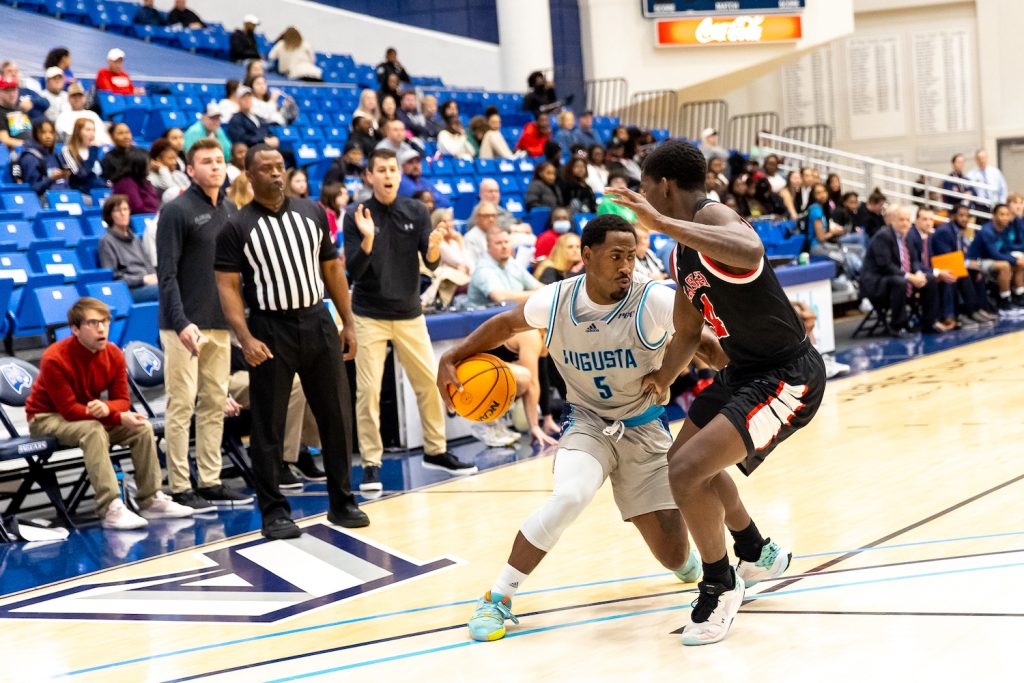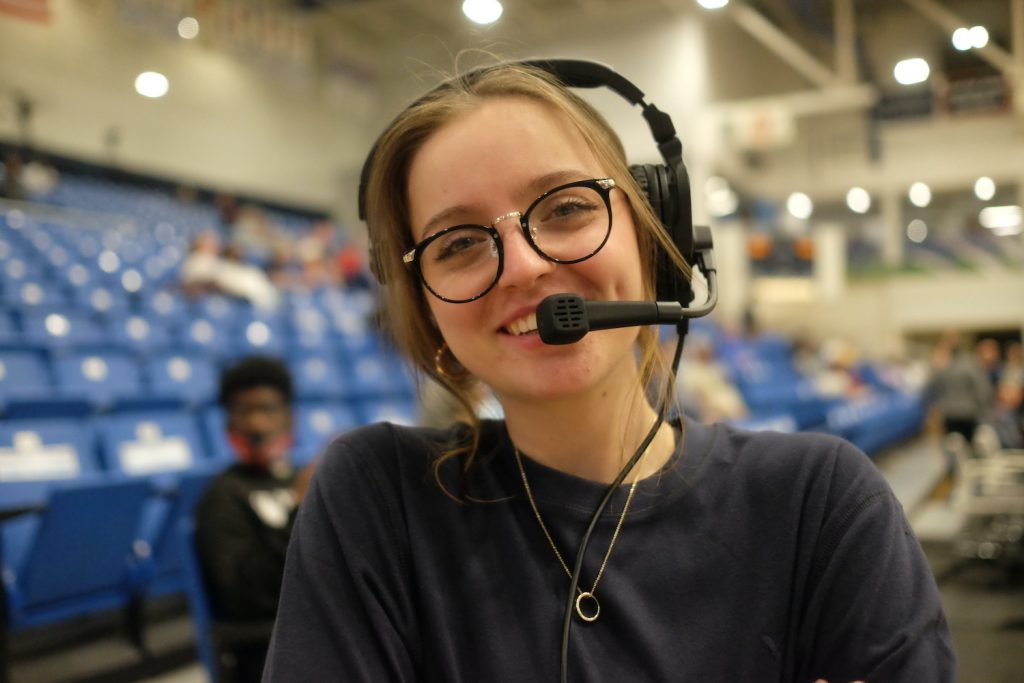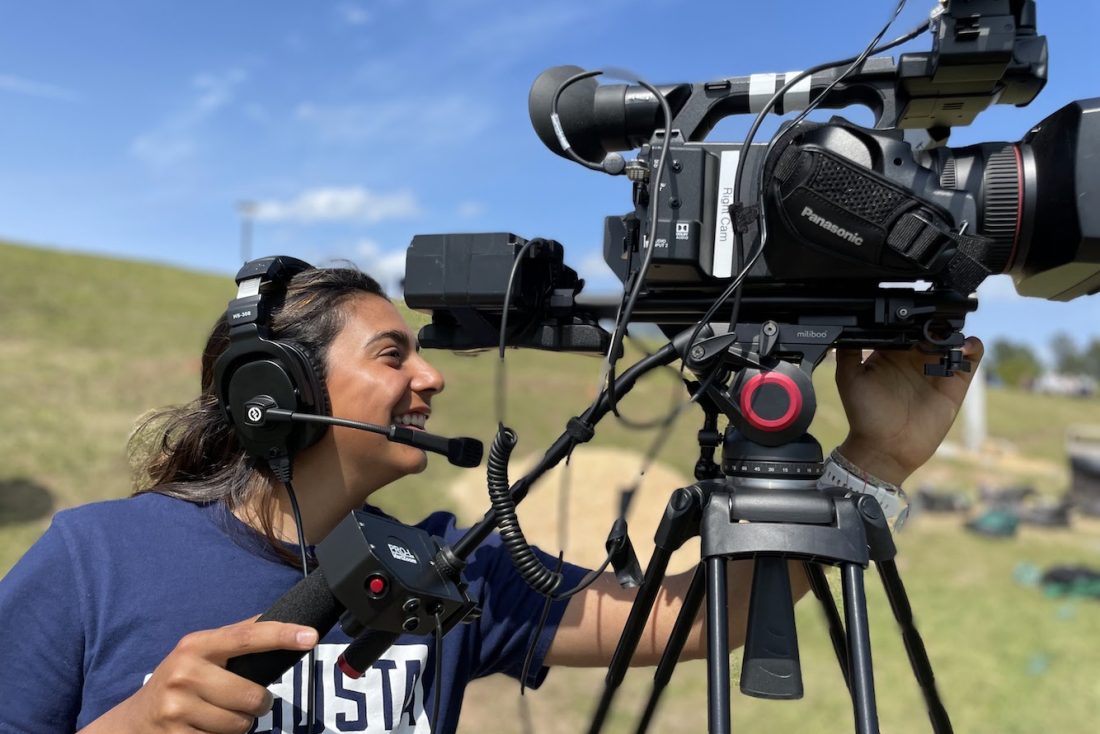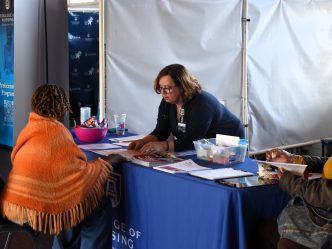A growing number of students are drawn to careers involving sports management that focus on a variety of areas including business, law, marketing, public relations, accounting and urban planning.
Starting this fall, Augusta University will offer a new Bachelor of Arts in Sports Management degree that will provide students with coursework specific to sports-related businesses and prepare students to work in high-level competitive sports settings.
“This is a degree like no other because there are other degrees in sports management in the state of Georgia, but they are all Bachelor of Science degrees, which tend to focus on logic, reasoning and problem-solving. They tend to be a little bit more quantitative,” said Judi Wilson, EdD, dean of the College of Education and Human Development at Augusta University. “A Bachelor of Arts in Sports Management is more communication-focused, based on critical thinking and holistic learning. A Bachelor of Arts allows for flexibility that the Bachelor of Science just does not provide space for. Augusta University will have the only Bachelor of Arts in Sports Management in Georgia.”

Future course topics will include communication, data analytics, economics, event planning, facility management, finance, governance, licensing, law, marketing, media, sales, sponsorship and other important components of the sports industry.
Students enrolled in the Bachelor of Arts in Sports Management will get firsthand knowledge and advice from guest speakers and lecturers employed at some of the most recognized sports entities in the world.
“A Bachelor of Arts in Sports Management is more communication-focused, based on critical thinking and holistic learning. A Bachelor of Arts allows for flexibility that the Bachelor of Science just does not provide space for. Augusta University will have the only Bachelor of Arts in Sports Management in Georgia.”
Judi Wilson, EdD, dean of the College of Education and Human Development at Augusta University
This new undergraduate program will also explore a variety of sports settings, including youth sports, intercollegiate sports, professional sports, amateur sports and other organizations related to the sports industry, Wilson said.
“When I think about flexibility, and when I think about our students today, one of the things that I really think about is that they want to feel special and unique. They don’t want a one-size-fits-all, cookie-cutter kind of approach to education,” Wilson said. “This degree allows students to bring their own interests, their own passions to the table. Whether it is their athleticism or just a passion for marketing or communication of sports and their desire to want to get the word out, this allows them to design a degree uniquely that reflects them, which is exciting to me.”
Through the 21-credit-hour degree minor built into this degree, students can combine these new sports management courses with classes in a variety of fields including marketing, world languages, communication, psychology and business in order to fulfill their degree, Wilson said.
“The options are limitless,” Wilson said. “This program allows for the personalization and the tailoring of this degree to meet a student’s unique passions and to reflect their career goals. So, as they think about the workforce and their career trajectory, what is it that they need to achieve those goals? A Bachelor of Arts will help students explore their options.”
While Bachelor of Science in Sports Management programs are more prevalent throughout the country, there are several outstanding Bachelor of Arts degrees in sports management in the United States that the kinesiology faculty reviewed when creating this new degree at Augusta University.
“Even though Bachelor of Science degrees in sports management are more common, universities such as the University of Michigan, the University of North Carolina – Chapel Hill, the University of Massachusetts in Boston and the University of Iowa have Bachelor of Arts degrees,” Wilson said. “Those are just a few of the programs that we looked at when we were creating our program here at Augusta University.”

Steven Page, EdD, chair of kinesiology in the College of Education and Human Development at Augusta University, said graduates of this new program could find future employment with sports facilities or teams across the country or even worldwide in areas such as communications, event management, data analytics or business.
“Of course, I think some of the students’ ultimate goal would be a sports agent,” Page said. “Those students would take this degree and then likely go on to law school.”
“I think 20 students in the first year will be no problem at all. That is what we anticipate, but I think that number is conservative because students have actually been approaching us for years about this kind of degree.”
Steven Page, EdD, chair of kinesiology in the College of Education and Human Development at Augusta Universit
The College of Education and Human Development is expecting at least 20 students to enroll in this new program by the fall, but Page said he anticipates those numbers to quickly increase over the next few years.
“I think 20 students in the first year will be no problem at all,” Page said. “That is what we anticipate, but I think that number is conservative because students have actually been approaching us for years about this kind of degree. We are bracing for the number of students interested in this degree in the future.”

Wilson said the College of Education and Human Development is currently in the process of hiring two new faculty members to help develop this new degree.
“Throughout the years, many of our student-athletes and coaches have wanted us to have this degree because, when they bring a scholar athlete here, this is the kind of degree that a lot of them want, but we did not have the program to offer them,” Wilson said. “So, those students have actually had to choose a different major because we didn’t have a degree in sports management. This new degree will help us, hopefully, with recruiting some of those top students to Augusta University as well.”
In addition, the College of Education and Human Development at Augusta University has already developed strong relationships with national and international teams through its kinesiology program, which will also benefit students interested in this degree, Page said.
For the Bachelor of Arts in Sports Management, internship opportunities will include collegiate settings, semi-pro sports teams, professional sports teams and internationally famous sports venues, he said.
“With our kinesiology program, we’ve had students in internships all around the world in places like France, Belgium and Italy,” Page said. “And, of course, we have internships anywhere in the United States, so we have a lot of relationships that we think will help serve these future students, as well.”

Students pursuing this new degree will enroll in courses such as sport law, sport ethics, the financial management of sport and sport and exercise psychology, Page said.
“There are also two marketing classes that will be a part of this new degree,” Page said. “We’ve been working closely with Dr. Simon Medcalfe of the Hull College of Business to include those courses in this degree. We will also include a course that will focus on teaching students to work with diverse populations that is currently taught by Dr. Hannah Bennett in our kinesiology department.”
Graduates of this degree can choose from careers that may include, but are not limited to, working as a sports scout, athletic director, sports agent, sports business manager or sports facilities manager.
“The sports management program will prepare students to work in high-level competitive settings such as professional teams, NCAA organizations and other sport businesses and organizations,” Page said.
This new degree will allow new students to embrace their love of sports and find a future career in sports management, Page said.
“A lot of students love sports and they’ve grown up playing sports, but they may not just be a college athlete or they may not be strong in the sciences, so they need other options,” Page said. “They don’t need to necessarily go to another major that has nothing to do with sports. If sports is their true passion, this could be their new pathway to a career in sports.”
 Augusta University
Augusta University




